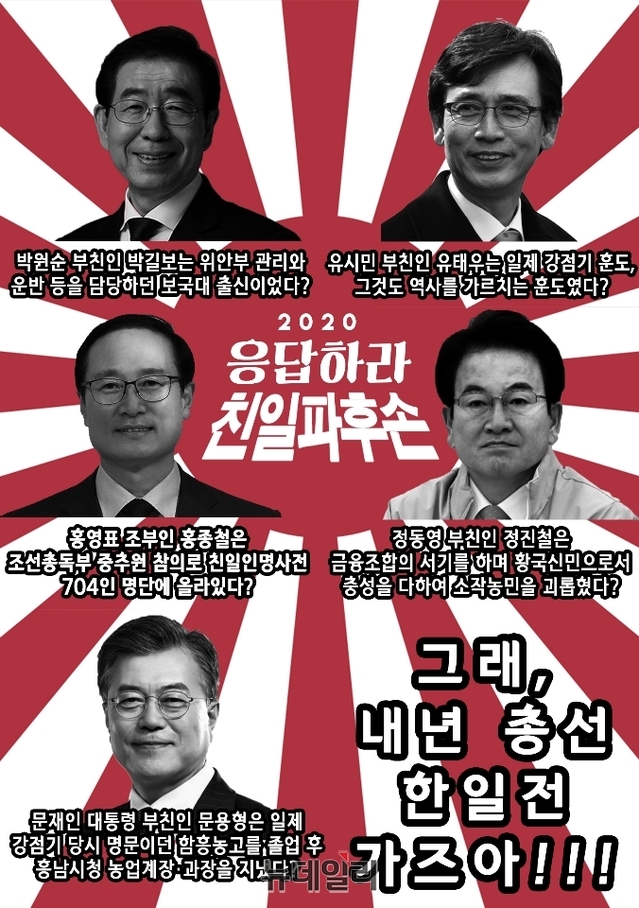South Korea’s presidential Blue House confirmed that President Moon Jae-in was involved in filing a lawsuit against a South Korean man in his 30s for insulting him.
According to local media on April 30, an official from the Blue House said, “There was a strong atmosphere that contents written on the pamphlets were too ‘heinous’ and that they crossed a line, so we can’t just let it go.”
“We considered public opinion that the president should not endure such an incident, and this was why someone on behalf [of the president] filed a lawsuit.”
This was the first time that the Blue House confirmed its role in the lawsuit. An insult charge is a crime that can be prosecuted only upon complaint and cannot be prosecuted over the express objection of the victim, according to South Korean criminal law. This means that either President Moon or a person on behalf of Moon filed a lawsuit against Kim.
This week, local media outlets and the public became interested in who actually filed a lawsuit after news broke out that said “Police would not tell the defendant who filed a lawsuit.” It gained so much attention because it is very rare for a president to file a lawsuit against a citizen over an insult. (https://onekoreanetwork.com/2021/04/29/president-moon-believed-to-be-behind-controversial-prosecution-over-insult/)
Kim Jung-sik handed out pamphlets criticizing Moon and members of the ruling Democratic Party (DP) near the National Assembly in July 2019. He was investigated by the police for nearly three years on charges of insulting Moon and others. The police told Kim that his case will be transferred to the prosecution.
Kim faces insult charges for handing out posters in 2019 titled, “2020, reply, descendants of Pro-Japanese faction.” The poster text read, “President Moon Jae-in’s father Moon Yong-hyun graduated from the prestigious Hamheung Agricultural High School [located in the northeast of the Korean peninsula] under Japanese rule and worked as an official for the Hamheung City Government.” Moon’s parents fled North Korea during the Korean War. On the backside of the posters, there were phrases such as “True colors of South Korean President Moon Jae-in, North Korea’s dog.”
The main opposition People Power Party (PPP) argued that the “generation of intimidation” has come. “People criticizing the president and those in power can be punished for blasphemy,” said Kim Jae-sup, a member of the PPP’s emergency committee. “This really is a society that is suffocating people.”
Chung Won-seok, another member of the PPP’s emergency committee said that, “Unfortunately, people came to see that the scale or capacity of President Moon was just the size of [a] soy sauce dish.”
Heo Eun-ah, a lawmaker from the PPP, compared Moon Jae-in to North Korean leader Kim Jong-un. “If there is a supreme highness called Kim Jong-un in North Korea, there are three supreme highnesses called Moon Jae-in, Cho Kuk, and Kim Eo-joon in South Korea,” she said.
Heo added that while the man who criticized President Moon is facing a lawsuit filed by the president, a member of the DPP’s emergency committee is being brought in for police questioning for criticizing former Justice Minister Cho Kuk’s daughter, and other politicians pointing out radio host Kim Ou-joon’s pro-Moon bias are attacked by strong Moon Jae-in supporters.
Kim Ou-joon is the host of the current affairs program “News Factory” aired by the Traffic Broadcasting System (TBS). Conservatives are angry about his political bias toward the Moon Jae-in administration and the ruling party.
“People who insult the supreme highness in North Korea are executed by anti-aircraft machine guns, and different types of machine guns are firing against people who insult supreme dignities in South Korea,” Heo argued.
According to a new Gallup Korea poll results on April 30, President Moon Jae-in’s approval rating dropped below 30 percent for the first time since inauguration in May 2017. It showed that 29 percent of respondents supported Moon’s leadership, down 2 percentage points from a week earlier. Moon’s approval rating was 38 percent at the beginning of this year. It fell 9 percentage points in just four months.
Among the reasons for the negative assessment of Moon, real estate policies came in first with 28 percent, followed by the government’s response to the Covid-19 with 17 percent. Another 9 percent cited a lack of progress in addressing problems related to the economy and people’s livelihoods.

Gallup also surveyed people’s thoughts about government policies. The Moon administration’s North Korea policy was supported by 83 percent of people in May 2018, largely thanks to the inter-Korean summit. However, it fell to 24 percent after 3 years. The approval rating of Moon’s overall foreign policy fell from 56 percent in May last year to 29 percent this week.
Park Sung-min, CEO of a political consulting firm, argued that “the 20 percent level approval rating is burdensome as the DP aims to win the 2022 presidential election. The party will start to keep its distance from the president, and signs of Moon becoming a lame duck will begin to appear.”


